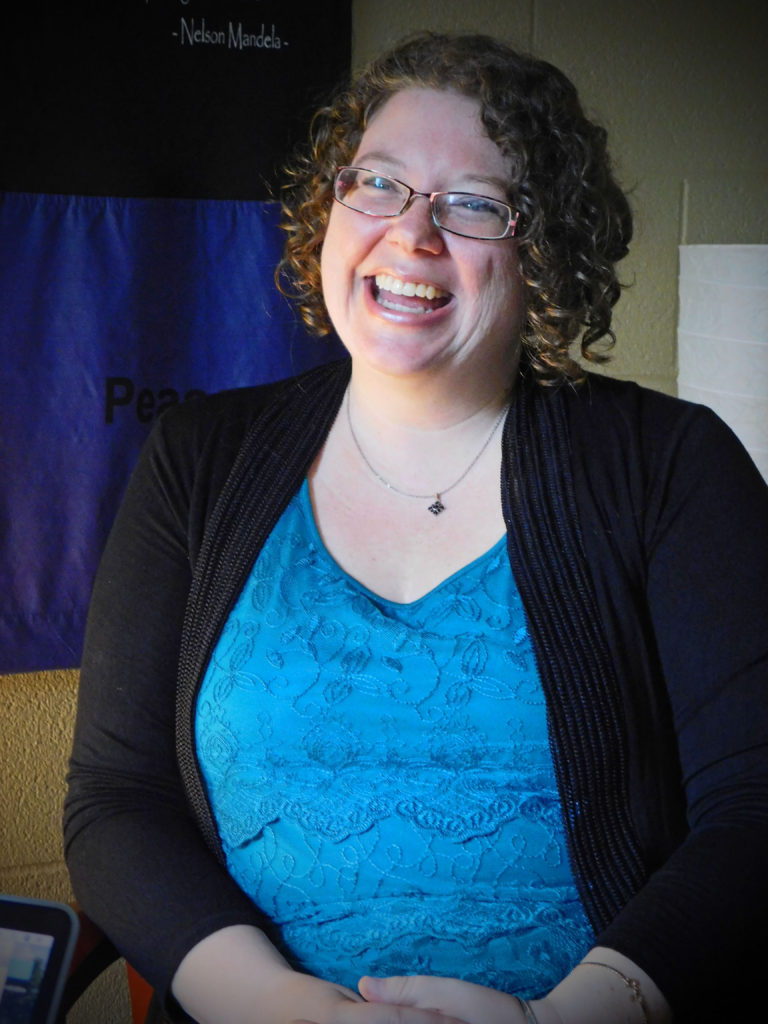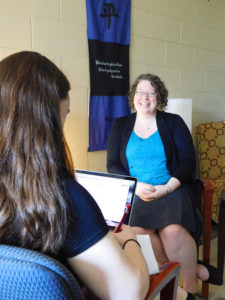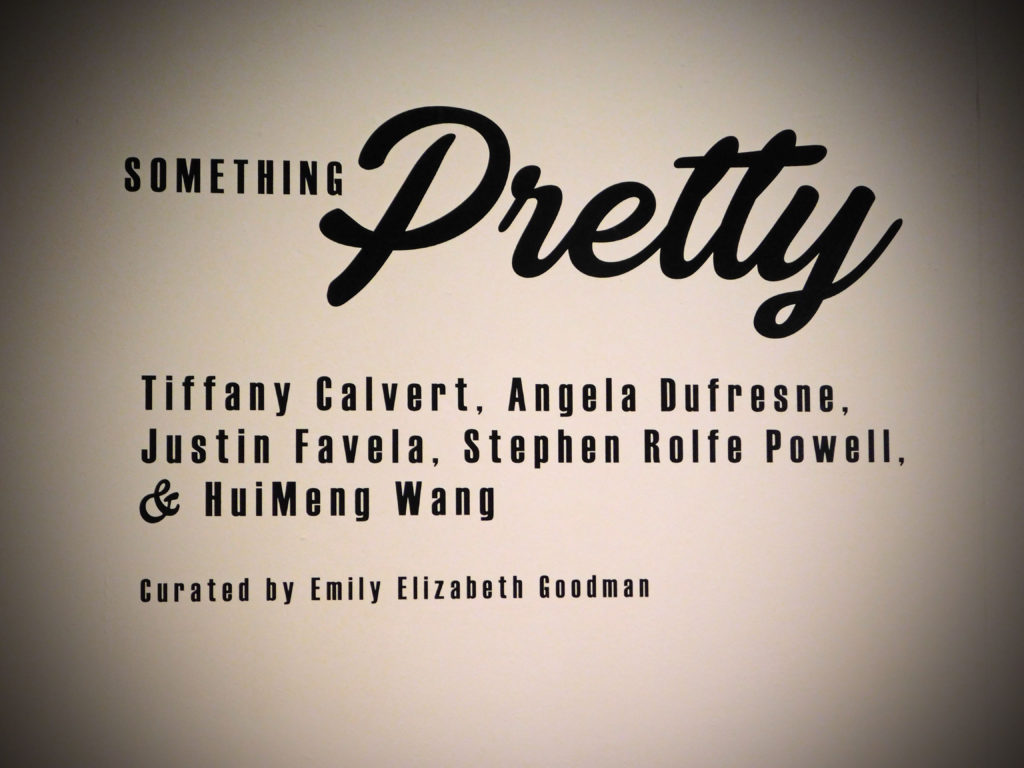This guest column is a part of our Safe Views series, where Transy students share their views on how they feel safe, and unsafe, on Transy’s campus. Student writers responded to the question, “Do you feel safe on Transy’s campus?” and they approached that question from a variety of perspectives and viewpoints. This guest column is written by sophomore Alexa Valarezo.
It’s my sophomore year here, and I can’t really tell you that I feel safe here. Maybe I’m in the wrong. Yes, we have a new crosswalk and signs up on how to conquer it, but me not getting hit by a car doesn’t take into account the emotional weight that comes with being at Transy. The world around us is full of violence and hatred and we may be in the Transy bubble, but this bubble is full of pain. I want to be very clear, however, that there is a lot of good here and a lot of bad that isn’t malicious.
I am a Latina woman. The way in which I interact on Transy’s campus is through my identity, and before Transy I never realized how alone I felt. Yesterday, while I was at a diversity and inclusion training focused around microaggressions, I thought of all the things I’d experienced in life that weren’t meant to be aggressive and damaging, but were. A lot of those things happened before life at Transy, but one of the worst happened here. One that was detrimental to the enjoyment of my first year here, one that changed my comfort on campus, one that I won’t ever forget.
It was during Taste of Lexington my freshman year and there was a taco truck outside the campus center, and, as most people are, I was on the hunt for the best tacos in Lexington. The man taking my order had been speaking Spanish to the cook behind him, so I decided to speak to him in Spanish. I rarely get the opportunity to speak in Spanish, because I live away from my family. The second I turned around to get some beignets from the doodles truck another member of my graduating class who I was friends with spoke at me, “Gosh, speak some English would ya.” I’d be lying if I said that I felt hurt at the time, because I didn’t. I was furious, and yet I said nothing and brushed it off. I didn’t officially report. It did end up turning into a disciplinary case because of mandatory reporting, but I sat through the whole case hearing my own character get slaughtered for what felt like eternity. The consequences for the perpetrator was attending some type of specific class/training, and I was to receive no contact.
I’m not really sure what kind of consequences this person deserved, but I know that nothing would have felt like enough. It changed my habits on campus. Even now, I still feel slightly uncomfortable speaking in Spanish around campus. The dust has settled, but I definitely haven’t fully healed. I don’t really know if I ever will. Because of that experience I can’t say I feel safe on campus, because the feelings I have towards it now are just pain because in trying to express myself I was demeaned. Safety, is the privilege to be yourself. I don’t feel like I’ve been able to do that here.
I hope that with the many efforts around campus to improve diversity and inclusion that these feelings will have gone away. To some extent they have. What people need to realize is that it isn’t just what is said to your face that creates these feelings of marginalization, but it’s the seemingly positive comments, the microaggressions, the looks or stares, and even the ‘innocent’ questions. It’s the resentment and pain of not having agency to speak up or feeling like no one is listening to your experience that contributes to not feeling safe here.






















Safe Views: Annie Stauffer on mental & emotional dangers
This guest column is a part of our Safe Views series, where Transy students share their views on how they feel safe, and unsafe, on Transy’s campus. Student writers responded to the question, “Do you feel safe on Transy’s campus?” and they approached that question from a variety of perspectives and viewpoints. This guest column is written by first-year Annie Stauffer. (Disclosure: Ms. Stauffer also writes for The Rambler as a staff contributor).
Safety on college campuses is something every student wants, but often doubts is realistic. For most students, it is their first time living on their own. Moving away from home and being placed into a new setting can make one feel anxious and scared. These emotions are heightened because of the risks of danger so commonly seen taking place on college campuses across the country. However, Transy offers something very unique in the way of safety–a tight-knit community where everyone knows everyone. With this community oriented environment, Transy creates a more comforting approach to on-campus safety and slightly diminishes the stereotypical college experience.
Safety on college campuses, especially for women, is a very large concern. Statistics say that one in five women are sexually assaulted on college campuses. This ratio is quite disturbing and leaves many women feeling on edge just walking to classes or walking to their cars. In a way, it strips people of their independence, which is highly unjust. Since Transy is a smaller university, there is a better chance of knowing the person that is walking behind you or living across the hall from you. Although I believe this level of comfort contributes to Transy’s safety, I do not believe it fixes the looming problem of feeling unsafe. This trusting, comfortable environment Transy provides makes it tempting to not pay attention to your surroundings and to get stuck in a dangerous situation you never dreamed you would be in.
Along with physical danger being a concern, there is also emotional endangerment that appears on college campuses. Being surrounded by your peers twenty-four/seven can be exhausting, especially for introverted people. It can also narrow your scope and shape your mind into processing thought in only one way–the process all your peers have. Smaller campuses often create an atmosphere so united that people get stuck in the status-quo even if it goes against their beliefs or wants. This can cause severe emotional damage and loss of identity. Transy’s academics offer the platform for a variety of students to share their differing opinions on important topics in the world. However, does this approach and encouragement of diversity spread itself throughout student’s social interactions on campus as well?
Mental danger is a growing concern on campuses too. Being bogged down with homework assignments involving presentations, essays, worksheets, and assigned readings along with extracurricular activities, having a healthy social life, and going through the difficulties of living on your own for the first time is a lot for one person to handle. This amount of stress does not give students a fair shot to succeed highly in each realm. When you have a single toe dipped in each of these categories, the likelihood of being extraordinary in each one is very slim. This creates the mindset in many students that they are failing when they are simply human beings trying to do the best they can.
Transy does create a unified on-campus experience that allows students to feel a bit safer in a culture where danger on collegiate campuses is a normal fear. However, this unity does not cancel out the stifling fact that many students feel they are in physical, emotional, and mental danger on college campuses. Transy does its best to provide a safe, comforting environment for all students, but it is still a university that is prone to these dangers just like any other campus. Although I consider Transy my new home filled with many people I care about, I cannot help but to still feel this quiet sense of worry I must carry around with me everyday because I am on a college campus.